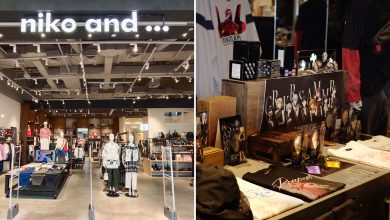MANILA, PHILIPPINES — Creating art is a collaborative process. One cannot create a theater production, a dance recital, or a music concert without a community with various stakeholders to back you up. Linkages and connections are as important as the artmaking processes.
Three cultural leaders from Nueva Vizcaya, Zambales, and Sorsogon realize the importance of belonging to a cultural network such as the Kaisa sa Sining (KSS) Regional Arts Centers of the Cultural Center of the Philippines (CCP) to strengthen their presence and expand their reach.

Initiated by the CCP Cultural Exchange Department (CED) in 2014, the CCP KSS is a partnership program that aims to strengthen the linkages and cooperation amongst regional educational institutions, non-government organizations, and local government units from different parts of the country.
The CCP KSS also aims to broaden public participation in the arts, promotes artistic excellence, and facilitates a vibrant collaboration between and among communities.



To date, the KSS network has grown to 69 organizations all over the country: 26 in Luzon, 19 in Visayas, and 24 in Mindanao. Recently, the KSS held its annual assembly on February 03, in Tagum City in Davao del Norte, coinciding with the staging of the first move over run of the CCP Pasinaya Festival. In the past years, the cooperation, and exchanges between and among CCP and the KSS network have become more dynamic.
Expanding the cultural programming
Being part of the KSS network has opened the arts and culture scene for the Novo Vizcayanos because they are able to participate and experience varied art forms. Their LGU has been a KSS partner since 2018.

“Somehow, it raises the standard since it challenges the local performers to level up and be given the chance to perform outside Nueva Vizcaya, providing them with pride of place. I also envision the Novo Vizcayanos getting a chance to watch performances from the KSS network and get more people and artists involved and exposed to the culture and arts scene outside Nueva Vizcaya,” said Nueva Vizcaya Provincial Supervising Tourism Officer Marichelle Orden-Costales.
Prior to joining KSS, the Nueva Vizcaya Provincial Tourism Office was not able to systematize their performing groups, cultural events, and arts events. Their cultural events are centered on festivals, tourism activities, and the like.
Located about seven hours away from Manila, Nueva Vizacaya is home to nine indigenous groups, the majority of which are Ilocanos and Aetas. The province is proud of its sons and daughters: visual artist Marlin Lopez, folk band Hibla, folk dance group Ari Tau Folkloric Society, and the late sculptor Anselmo Day-ag, who was known for creating the Marcos bust in Ilocos Norte, the Lion’s Head in Baguio City, and the Eagle sculpture in Agoo, La Union.
One can visit important cultural properties in the province, such as the People’s Museum and Library, the St. Catherine Church, the Bayombong Cathedral, and the Dupax del Sur Church.
“We create programs around these important cultural and heritage sites, such as media tours or exchange visits. We also conduct indigenous people’s cultural workshops every year with selected elementary schools as beneficiaries,” shared Marichelle, who has been working as a tourism officer for 23 years.

Through the KSS program, their province was able to bring world-class performers from CCP for the first time to Nueva Vizcaya, “which is very much appreciated by the Novo Vizcayanos,” observed Marichelle.
As the events were well attended, she remembered other CCP shows presented, including the Perlas ng Silangan performance, which filled up their convention center, and Sining Alay sa Manggagawa, a tribute to farmers and teachers. “With this partnership, we were able to reach out to other sectors of society,” said Marichelle.
Understanding interconnection

For Casa San Miguel Foundation President and prominent violinist Alfonso ‘Coke’ Bolipata, “The traditional notion of art institutions as isolated ivory towers has become increasingly outdated, though still evident in rare instances. Overcoming our tendency towards parochialism and insularity poses a significant challenge as we seek to broaden our horizons and embrace collaboration across diverse sectors and communities.”
He explained that the shift towards interconnectedness not only fosters innovation and growth but also cultivates a more inclusive and dynamic organizational landscape that better serves the needs and aspirations of society.
This is where KSS comes in, sharing how it has made an impact on his life and the group after partnering with CCP.
“The evolution of organizations, including art institutions, hinges on their capacity to forge connections with other entities, regardless of their scale, to advance their goals,” said Bolipata. Traditionally viewed as an ivory tower, Bolipata perceives how the CCP has transformed its role into that of a national agency for nation-building.
“The term ‘Cultural Center’ now better embodies its implicit function as a repository of creative products from across the country rather than solely a producer itself,” said Bolipata.
He added, “The CCP KSS program epitomizes this role, serving as a catalyst for fostering creativity, cultural expression, and exchange nationwide. By offering support and a platform for artists and cultural workers from diverse backgrounds, the CCP embraces its role as a facilitator and collaborator in the cultural landscape, enriching the nation’s cultural heritage and identity.”
Alfonso envisions the arts and culture scene in the coming years optimistically, as navigating the complexities of audience engagement involves recognizing the shifting landscape of preferences and influences.
“While classical music education remains our core competency and focus, expanding programs to align with contemporary tastes and media influences is essential. This may involve incorporating more courses and disciplines as well as elements of popular music or leveraging digital platforms to enhance accessibility and relevance,” he said.
Providing new opportunities

With the ever-evolving arts and culture scene in the Philippines, Sorsogon Community-Based Theater Group (S-CBTG) Artistic Director Danilo Razo envisions the need to keep up with time, creating more inclusive and accessible cultural events and programs that engage the local community while attracting visitors from other regions. The KSS partnership has provided invaluable opportunities for his group to further enrich and develop our artistic endeavors.
“Through this partnership, we have gained access to a wide range of resources, training programs, and networking opportunities facilitated by CCP. These resources have not only enhanced our technical skills but have also broadened our understanding of the cultural landscape at both the regional and national levels,” said Danilo.
Founded in 1985, the S-CBTG nurtures young generations of artists by producing performances, organizing workshops, and creating other community-based culture and arts initiatives at both local and provincial levels. The KSS has enabled them to increase public participation in the arts within their community. By collaborating with CCP and other regional partners, the group has been able to organize more inclusive and engaging cultural events, workshops, and performances that resonate with local audiences.
“The partnership has not only elevated the quality of our productions but has also strengthened our sense of community and collaboration. We are able to showcase the rich cultural heritage of Sorsogon on a broader platform, fostering a deeper appreciation for the arts within our province and beyond,” shared Danilo.
His vision for the S-CBTG is that of a vibrant and thriving arts and culture scene in the coming years. “We will aspire to continue pioneering innovative and impactful cultural initiatives that celebrate and preserve our rich heritage while embracing contemporary artistic expressions. Our vision for the arts and culture scene in Sorsogon is one of innovation, inclusivity, and excellence.”
Danilo has been dedicated to continuing our pioneering efforts and collaborating with like-minded individuals and organizations to make this vision a reality.
All three cultural administrators have been thankful to the CCP KSS, especially the CED Department Manager Carmencita “Chinggay” Jasareno-Bernardo, because they are able to expand their reach, increase public participation in the arts, and facilitate vibrant collaborations within their community and with other regions.








